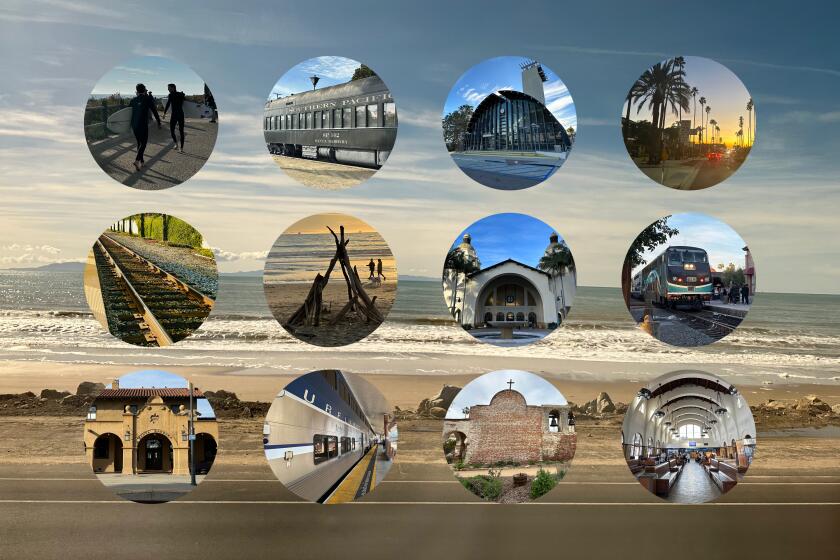On the Spot: Car rentals and the honor system

Question: In looking recently at Enterprise’s car rental rates in the Los Angeles area, I notice that it stipulates that the car must remain in California, Arizona and Nevada. I chose another agency that did not have such a restriction. Do they have a tracking device in the vehicle? What are the consequences if I travel to other areas? Also, when I returned a different rental car, this one in Portland, Ore., the agency told me to bring a gas receipt from a station within five miles of the airport to show that the tank was filled. How do they enforce that rule, and how do they know how far I might have driven after refilling the tank? They did not check the receipt when I returned the rental car.
Patrick Lee, Arcadia
Answer: How a rental car company knows you are staying inbounds and how it knows that you bought gasoline within five miles of the return lot can be traced to one source: you.
“We rely on our customers to be transparent, just like we try to be transparent,” said Laura Bryant, representative for Enterprise Holdings, which has under its umbrella Enterprise, Alamo and National rental car companies.
As for geographic limitations, when you rent a car and sign the contract, you’re giving your word that you’ll comply with what the contract says. If you decide to stray, the company probably will never know; most vehicles do not have trackers, although high-end models may. But — and there is always a “but” when you’re considering doing the wrong thing — if you run into trouble (the car breaks down, you have an accident), the trouble you’ve encountered is going to be trouble times 10.
If you’re out of bounds, the car rental company may not have resources close enough to provide roadside assistance. In case of an accident, if you’ve bought, say, rental insurance, your off-the-grid adventure may nullify it. (The insurance was for a designated area, not for a place 2,000 miles away.)
Even if you don’t have geographic restrictions and you want to take your car into Mexico or Canada, you should discuss it with the car rental company. Hertz, for instance, “allows some of its vehicles to be driven into Mexico from the U.S.,” said Paula Rivera, a representative for that company. The operative word is “some,” which means not all.
You’ll need extra insurance for Mexico, Rivera added: “Hertz offers its customers an optional Mexican insurance policy that permits the customer, subject to some limitations, to travel into Mexico to a maximum distance of 250 miles south of the U.S./Mexico border.” That means if you’re planning to drive, say, from El Paso, Texas, to Mexico City, you shouldn’t be making that 1,100-mile trip in a Hertz rental car.
Driving into Canada is probably allowed, but again, you need to talk to the rental car company.
You’ll find a host of information in a rental car contract, Bryant said, adding that “it’s intriguing to read.” I wouldn’t necessarily put it up there with anything on the bestseller list, but if you’re a “knowledge is power” sort, the info might give you a better understanding of an industry that seems simple but isn’t.
Now to the question of returning a car with the gas tank full. Until rental (or any) cars are equipped with gas gauges that measure the tank precisely, the only way car rental companies can judge whether the car is full — besides the visual inspection of the not-always-accurate gas gauge — is a receipt from a nearby gas station. (It’s a good thing to have anyway in case there is a dispute later about whether you did, indeed, fill up.)
Think of it this way: If 60 cars are returned to a rental car location each day, and each one is short 1 1/2 gallons of gas, based on the recent price of fuel in California, according to AAA, that car company would need to make up $1.2 million in a year.
Big deal, you say? Certainly it is to a business. But the bigger deal is just who — Dudley Do-Right or Dudley Do-Whatever-You-Feel-Like — is staring back at you from that rearview mirror.
Have a travel dilemma? Write to travel@latimes.com. We regret we cannot answer every inquiry.
More to Read
Sign up for The Wild
We’ll help you find the best places to hike, bike and run, as well as the perfect silent spots for meditation and yoga.
You may occasionally receive promotional content from the Los Angeles Times.







